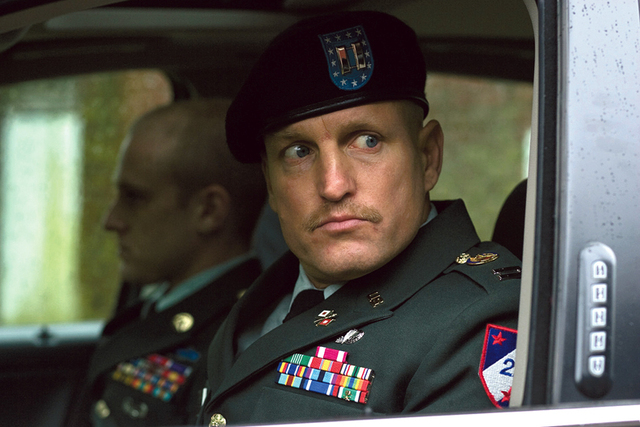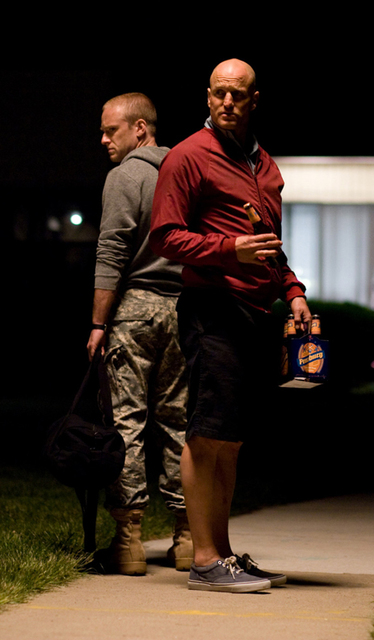Film Review: The Messenger Starring Woody Harrelson, Ben Foster And Samantha Morton
Delivering Bad News Makes For Good Drama In Quietly Powerful Indie


Harrelson is rockin’ the beret!

Harrelson and Foster model the new PTSD line from J.Crew


